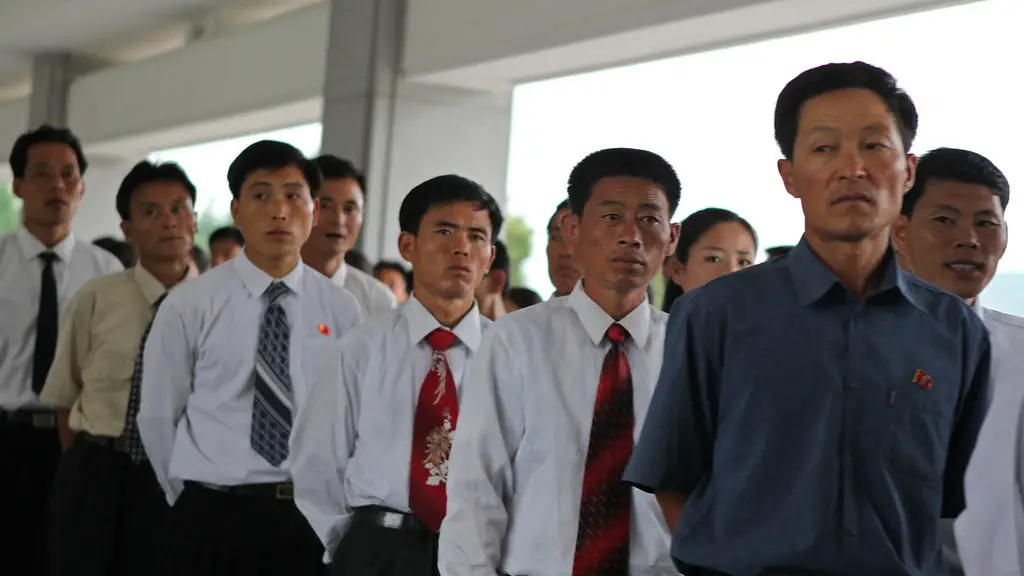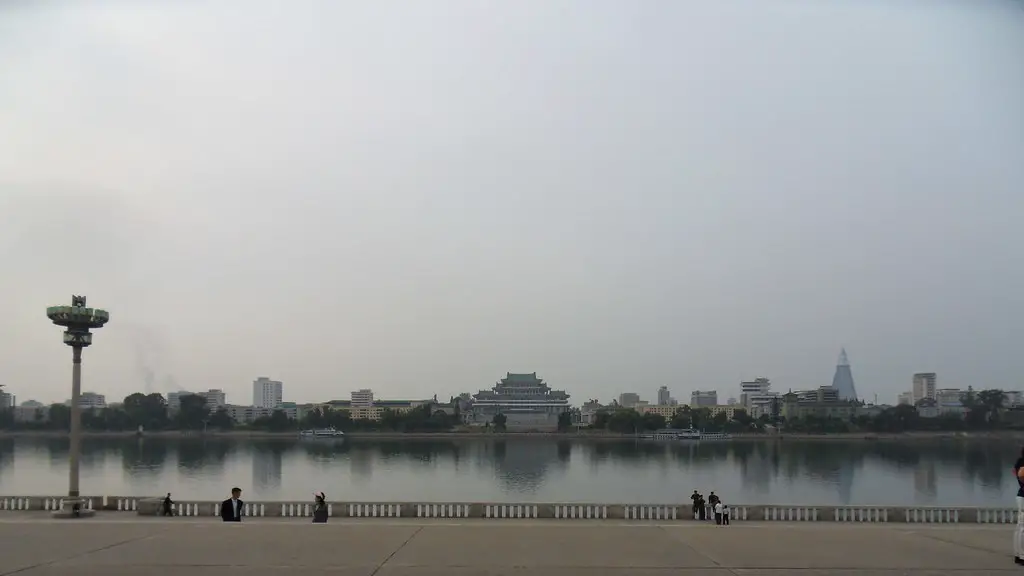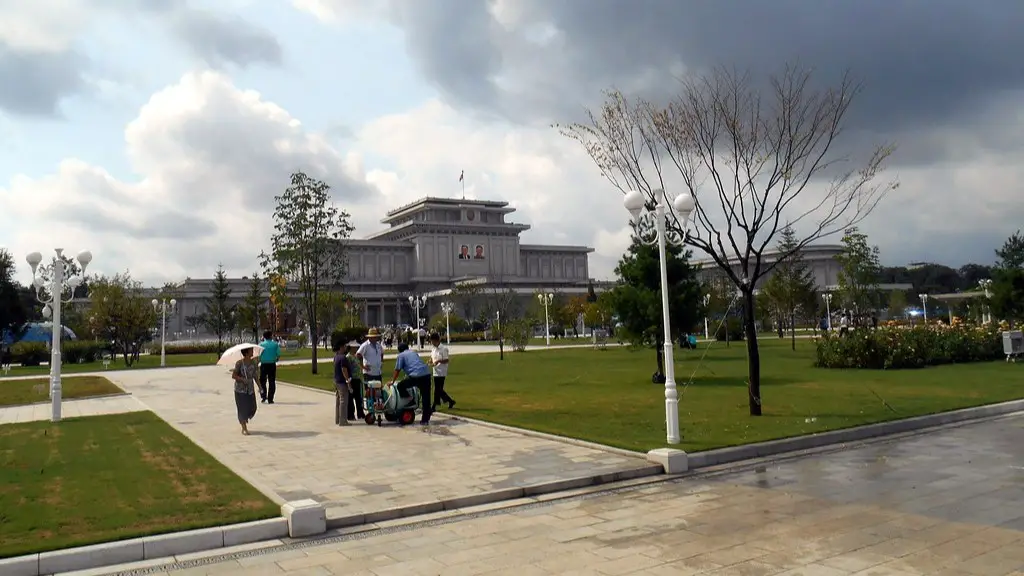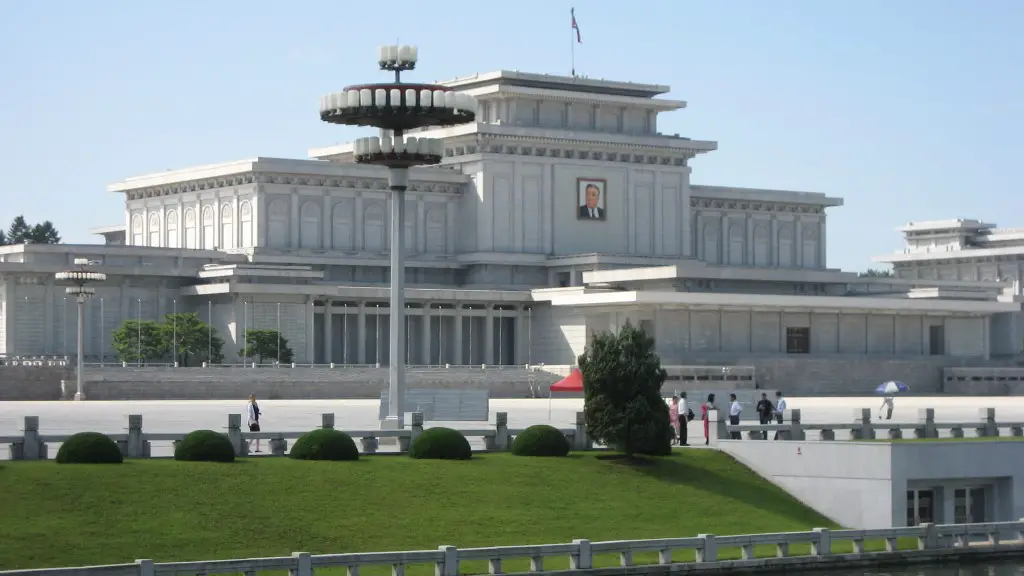Are We Getting Bombed By North Korea?
Tensions between the United States of America and North Korea have been ever-strained since the Korean War in 1950. Recently, some experts are beginning to speculate that North Korea’s nuclear program and missile tests have put the US at risk of a potential attack. The questions remains: are we getting bombed by North Korea?
It is a legitimate concern given North Korea’s past behavior and rhetoric. For example, the country has conducted six nuclear tests in total, the most recent of which occurred in September 2017. North Korea has also tested several intercontinental ballistic missiles, and has talked of possibly targeting the West Coast of the United States. It is clear that North Korea is becoming increasingly aggressive, and the US must take this threat seriously.
Fortunately, the US is doing its best to ensure that it is not attacked by North Korea. President Donald Trump has already proven that he takes the matter seriously, and has condemned North Korea’s nuclear ambition. He has even taken steps to increase economic pressure on North Korea, in the form of sanctions and embargos. The US has also increased its military presence in the region, as well as its cyber security capabilities.
US experts have also suggested that North Korea may not have the capability to launch a successful attack on the US. It is believed that North Korea’s missiles may not have the reach to strike targets on the West Coast of the United States. At present, the most dangerous missiles in North Korea’s arsenal are believed to be able to reach the continental US, but experts doubt that North Korea has the ability to accurately target specific areas of the US.
Additionally, US intelligence agencies assess that it is unlikely that North Korea would risk its own destruction with a nuclear attack. While North Korea has expressed a willingness to use nuclear weapons in the past, it is believed that the country understands the consequences of a nuclear attack on the United States. North Korea’s leaders understand that such an attack would be met with a devastating retaliation by the US.
It is possible that North Korea could launch a conventional attack on the US, but such an attack would likely be limited in scope and would not involve nuclear weapons. Furthermore, it is believed that North Korea does not have the capability to launch a successful conventional attack on the US. As such, it is unlikely that North Korea will attack the US in the near future.
It is important to note that North Korea is still a dangerous and unpredictable country. The US must remain vigilant in its efforts to contain North Korea’s nuclear ambitions and its missile program. As the situation continues to evolve, the US must remain informed and prepared for any potential attack from North Korea.
Security Measures
The United States has taken a number of steps in order to ensure its security against a potential attack from North Korea. This includes both diplomatic and military measures. The US is committed to working with its allies in the region to ensure that North Korea does not acquire nuclear weapons. In addition, the US has deployed additional forces to the region in order to deter any potential aggression from North Korea.
The US has also imposed sanctions on North Korea in order to force the country to abandon its nuclear program. These sanctions are intended to limit North Korea’s access to resources and technology needed to develop nuclear weapons. It is hoped that these sanctions will be effective in curbing North Korea’s aggressive ambitions.
Furthermore, the US is working with Japan and South Korea to develop an effective defense system to protect against North Korean missiles. This system, known as the Terminal High Altitude Area Defense (THAAD), is capable of destroying incoming missiles before they reach their targets. This system serves as a key defense against North Korean missiles.
In addition to these military measures, the US is also engaging in diplomatic efforts to keep the peace. The US has been in talks with North Korea for many years, and continues to call for North Korea to end its nuclear program in exchange for diplomatic benefits. It remains to be seen if these talks will be successful in bringing peace and stability to the region.
Overall, the US is taking steps to ensure its security against a potential attack from North Korea. The US must continue to be vigilant and prepared for any potential attack, and must not let its guard down.
International Response
The international community has responded to North Korea’s nuclear ambitions with a combination of disbelief and concern. Most countries in the world are in support of the US’ efforts to contain North Korea’s nuclear program. Many countries have imposed their own sanctions on North Korea in order to limit the country’s access to resources and technology needed to develop weapons.
Furthermore, some countries are working with the US to develop a defense system against North Korean missiles. Japan and South Korea have both agreed to work with the US to develop a system that can destroy incoming missiles. This system, known as the Terminal High Altitude Area Defense (THAAD), could be a crucial element in defending against potential North Korean aggression.
However, there are some countries that have not taken a hardline stance against North Korea’s nuclear ambitions. For example, China has not imposed sanctions on North Korea, and has instead called for a peaceful resolution to the situation. China has also criticized the US’ military presence in the region, and has urged the US to engage in negotiations with North Korea rather than resorting to military action.
Overall, the international response to North Korea’s nuclear ambitions has been a largely unified condemnation. Most countries are in support of the US’ efforts to contain North Korea’s nuclear program and missile tests. However, there are some countries that are not in favor of a military solution to the situation.
Political Consequences
The nuclear ambitions of North Korea has had a number of political consequences. For example, there has been an increased focus on US-North Korea relations. The US has been keen to impose sanctions and embargos on North Korea in order to limit its access to resources and technology needed to develop weapons.
It has also caused a split between the US and some of its allies. China and Russia, for example, have urged the US to seek a peaceful resolution to the crisis, rather than relying on military action. The tensions between the US and some of its allies have caused divisions in the international community, and could have long-term implications for the global political landscape.
The nuclear ambitions of North Korea have also caused political tensions in the region. Countries such as Japan and South Korea are worried about the increasing aggression from North Korea, and have been forced to increase their military presence in order to deter potential North Korean aggression.
Overall, the political consequences of North Korea’s nuclear ambitions have been felt throughout the region. The US and its allies have been forced to take a hard line against North Korea in order to contain its nuclear ambitions. This has caused divisions in the international community, and has resulted in increased military presence in the region.
Economic Implications
The economic implications of North Korea’s nuclear ambitions have been significant. For example, the US has imposed a series of sanctions and embargos on North Korea in order to limit its access to resources and technology needed to develop weapons. This has had a negative impact on North Korea’s economy, as it has limited North Korea’s access to international markets.
Furthermore, North Korea’s nuclear ambitions have caused global markets to become increasingly volatile. As tensions between the US and North Korea increase, investors have become increasingly worried about the potential for a nuclear conflict. This has caused markets around the world to become unstable, and could have long-term economic implications.
The economic implications of North Korea’s nuclear ambitions have not been limited to North Korea. Countries such as China and Russia have also been negatively impacted by the sanctions imposed by the US. These countries have been forced to increase their own economic pressure on North Korea in order to limit its access to resources and technology needed to develop nuclear weapons.
Overall, the economic implications of North Korea’s nuclear ambitions have been significant. The US’ sanctions and embargos have had a negative impact on North Korea’s economy, and have caused global markets to become unstable. This could have long-term economic implications for the region as a whole.
Conclusion
Overall, it is clear that the US is at risk of a potential attack from North Korea. North Korea has expressed a willingness to use nuclear weapons in the past, and has tested its missiles on a number of occasions. The US is taking measures to ensure its security against a potential attack from North Korea, and will continue to do so in the future.
The international community has largely been unified in its condemnation of North Korea’s nuclear ambitions. Most countries are in support of the US’ efforts to contain North Korea’s nuclear program. However, there are some countries that have not taken a hardline stance against North Korea’s nuclear ambitions.
The nuclear ambitions of North Korea have also had political and economic consequences. The US has imposed sanctions and embargos on North Korea in order to limit its access to resources and technology needed to develop weapons. This has had a negative impact on North Korea’s economy, and has caused global markets to become increasingly volatile.
It is clear that the US must continue to be vigilant and prepared for any potential attack from North Korea. However, it is also important to remember that North Korea is still a dangerous and unpredictable country, and must be dealt with carefully.





